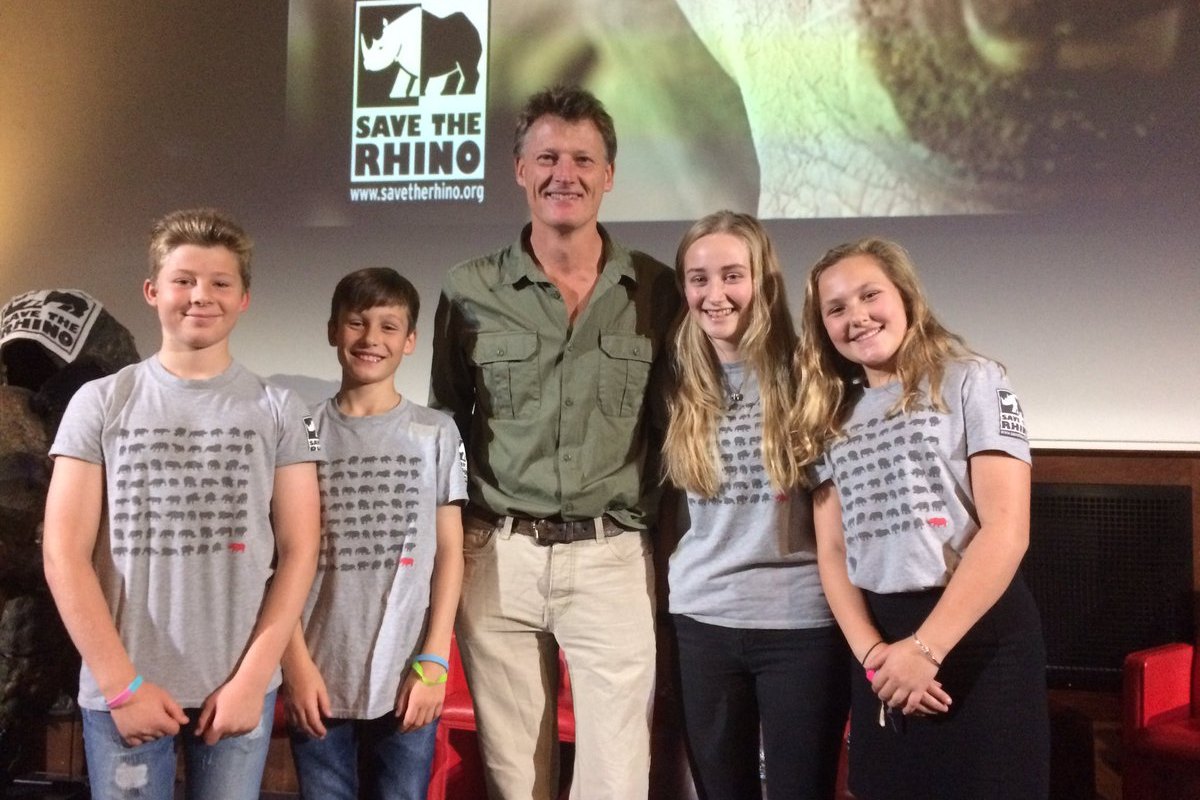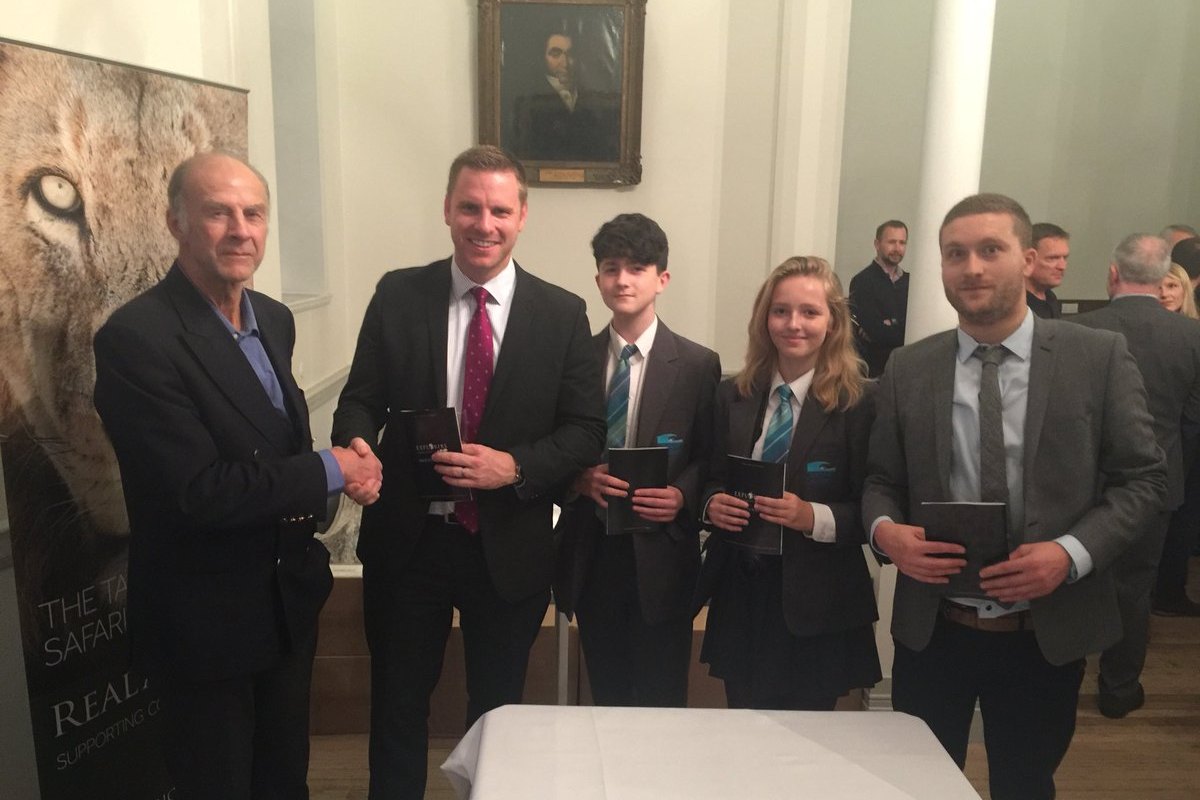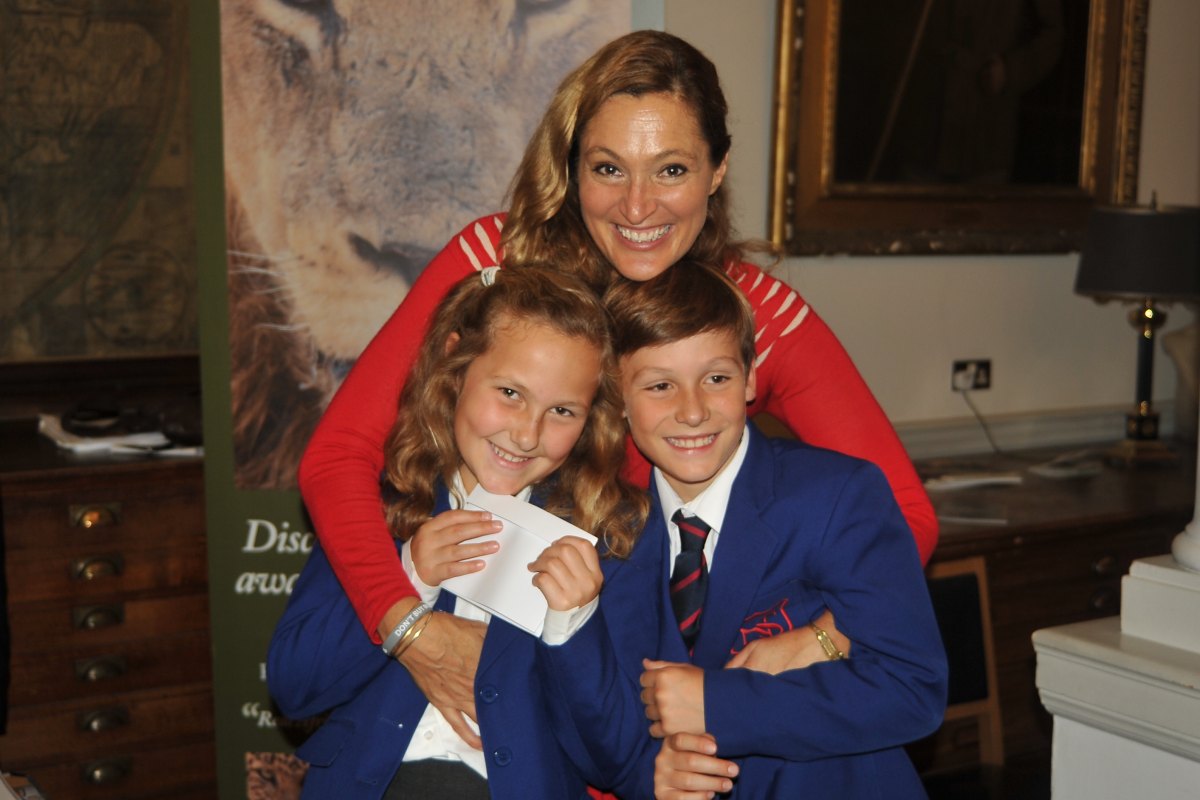We work with schools to help young people build their knowledge and understanding of the environmental challenges facing our wildlife and wild spaces. Our aim is to inspire positive action.
Our Schools Against Extinction education initiative is focused specifically on raising awareness about endangered species and the threats facing them. We can help your pupils develop their understanding of our planet’s most endangered species, the threats they face, and how we can all act to ensure their survival.
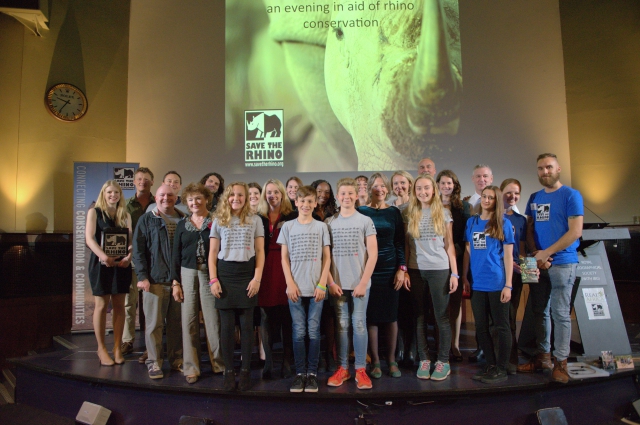

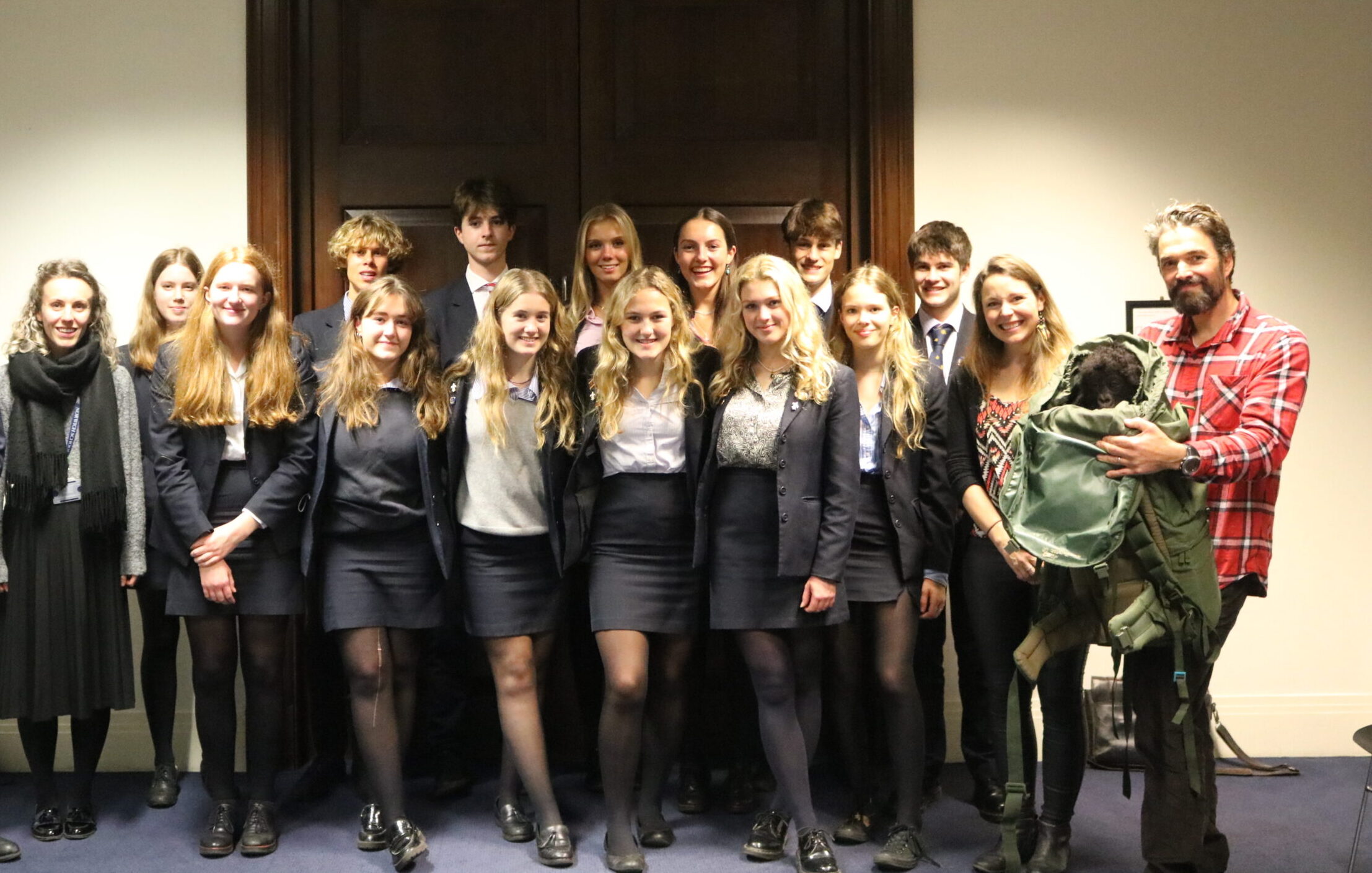
Fundraise for Explorers Against Extinction
Support our work and raise funds for Explorers Against Extinction. This could simply be in the form of a bake sale or coffee morning, or a non-uniform day – there is no minimum fundraising amount. £50 for example pays for a check-up at the vet for one of our conservation canines; £20 pays for a pair of boots for a ranger.
Fund-raising support
Fund-raising suggestions: hold a non-uniform day, a cake sale/coffee morning or a sports day/summer fair barbecue; organise an event (disco, music recital, conservation debating competition etc) ; make and sell wildlife postcards/greeting cards/Christmas cards; organise sponsored activities (walks/dog walks; beach/park clean-ups; litter picks).
Host an event at your school: sell tickets for a conservation evening at your school. It may be possible for a trustee to come to talk about our work in more detail.
You can choose the project you want to support and set your own target for how much you want to raise. Fund-raising tiers:
- £250: school receives a certificate and thank you video message
- £500+: as above plus elephant orphan adopted on your behalf for one year
- £1000+: as above plus opportunity for a visit by one of the trustees to talk more about our conservation work
To get some inspiration for how your fundraising could benefit our projects please see below.
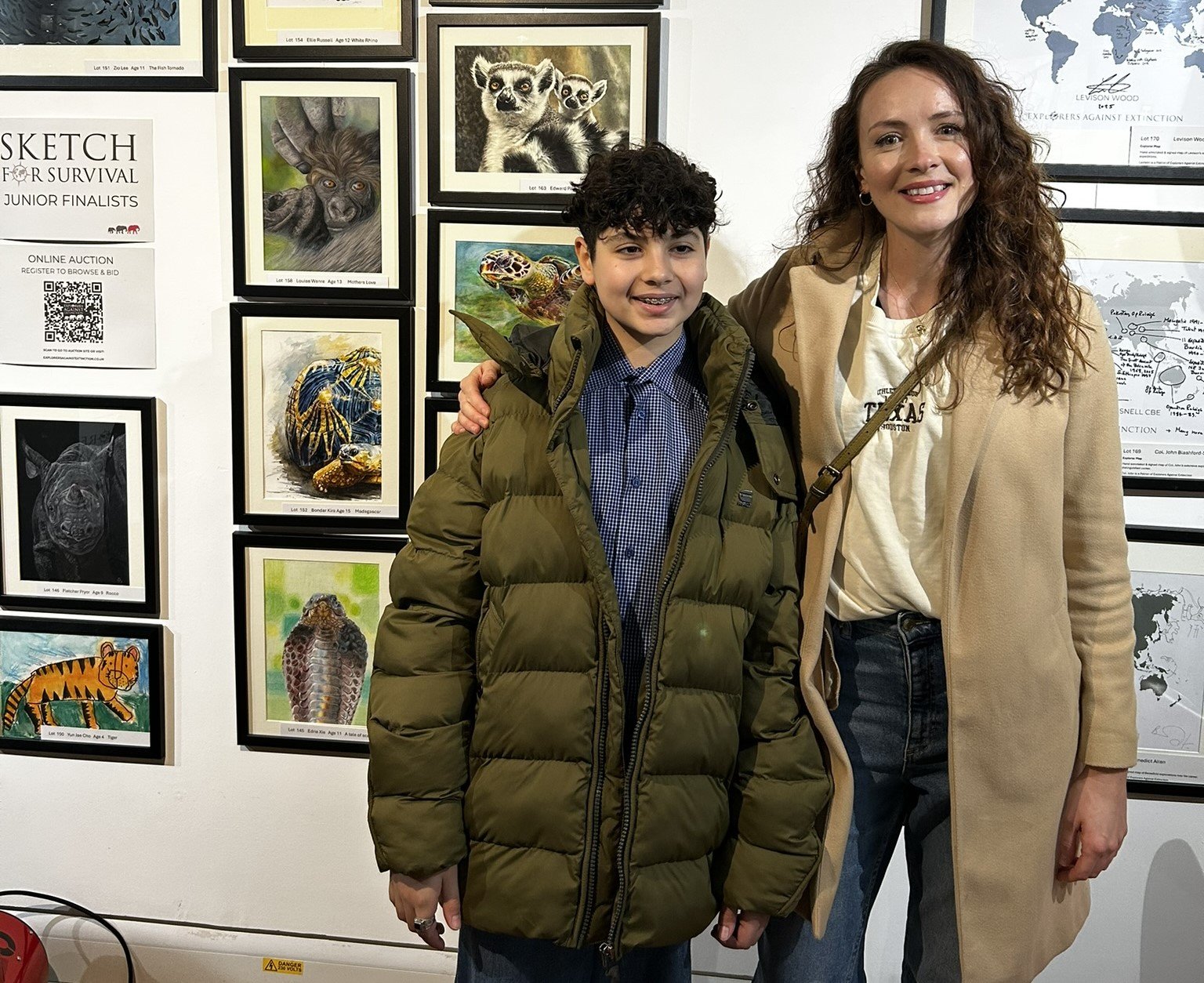
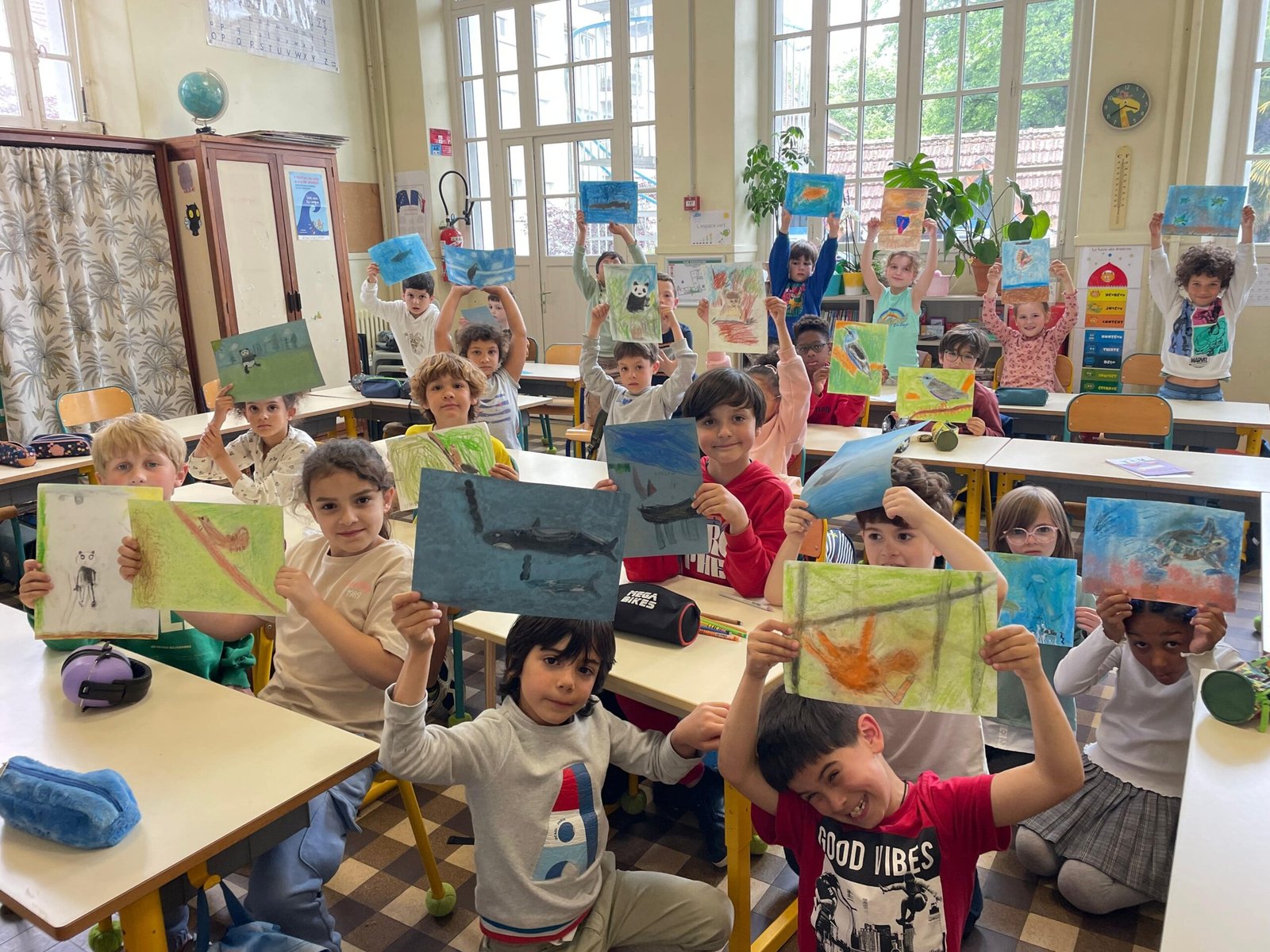
Sketch for Survival Junior – Art Competition
Sketch for Survival Junior helps to raise vital awareness about species extinction and biodiversity loss while also raising funds for projects around the world.
The competition showcases a range of different art styles and unites the voices of young people from all around the world in support of conservation. Last year we received over 5,000 entries from nearly one hundred different nationalities. In nine years, 119 nationalities have participated.
In 2026 we have three age groups – 7 and under ; 8-11 years and 12-16 years. Submissions close on 31 May.
For step by step instructions and further information about Sketch for Survival Junior please see the main campaign page and go to How do I enter as a school?
If you have any other questions or require further guidance please contact neil@realworldconservation.org.uk
Images: SFS Junior Head Judge Sophie Green pictured with SFS Junior Finalist 2025 Taha Cetinkaya, age 10; school submission
SAMPLE PROJECTS

The Sheldrick Trust: £500 – £1,800 fund-raising target
Pioneering elephant rescue, rehabilitation and release project in Kenya founded by the late Dame Daphne Sheldrick.
£500 could fund a full day’s worth of specialist milk formula for orphaned elephants in care at the Nairobi nursery.
£1,100 could help fund a Mobile Veterinary Unit for two weeks, giving life-saving treatment to sick and injured wild animals in the field
£1,500 could support a ranger through three months of intensive training at the KWS Manyani Training Academy.
£1,800 could help support the rescue and initial care of an orphaned elephant brought into the Nairobi Nursery at the Sheldrick Wildlife Trust. One orphan may be fostered on the school’s behalf, with monthly e-updates provided for one year.

Ol Pejeta Conservancy: £1000 – £4,000 fund-raising target
Ol Pejeta is part of Fauna & Flora International and is the largest black rhino sanctuary in East Africa. It is also home to the last two northern white rhinos in the world. The rhinos are protected by a specialist anti-poaching dog squad or K9 unit, comprising three different breeds fulfilling different roles: tracking (bloodhound), detection (Spaniel) and attack (Belgian Malinois).
£1000 could help equip a wildlife ranger with core patrol essentials, including boots, uniform and field equipment such as binoculars – supporting their day-to-day work protecting wildlife.
£3,500 could fund the care and upkeep of an anti-poaching canine for a year, supporting vital detection and patrol work.
£4,000 could help support the day-to-day care and protection of Ol Pejeta’s rhinos, and give your school the opportunity to name a rhino on the conservancy.

Tiger Protection Units, Sumatra – £1000 – £3,500 fund-raising target
Equip forest-edge community rangers working in three ecosystems in Sumatra with vital equipment. The rangers patrol for snares, monitor the health and movements of the tigers and observe changes over time to the rainforest habitat – their work is essential to the tiger’s future and an essential link with the local communities.
£1000 could help fund camera traps to monitor wildlife, including tigers and other threatened species, supporting vital research and anti-poaching efforts.
£2,500 could help support a session of field training, enabling new rangers to gain the skills needed to patrol forest areas and protect tigers from poaching.
£3,500 could help fund a patrol motorbike, improving ranger access to remote forest locations and strengthening protection for tigers and their habitat.
